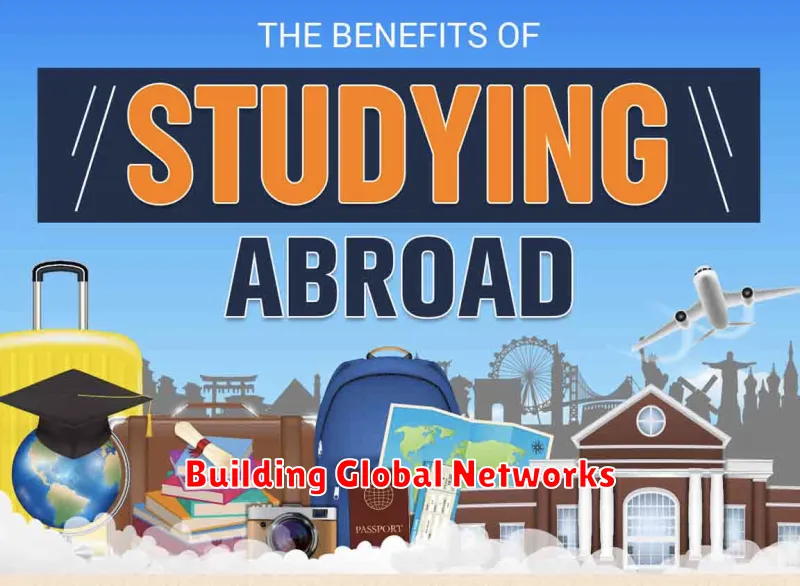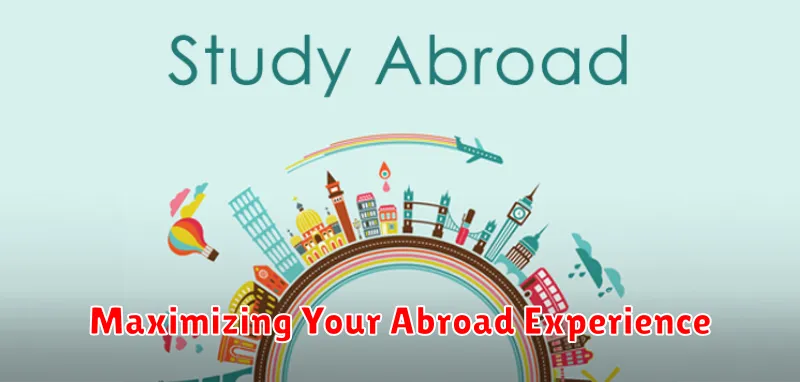Considering a transformative experience that can broaden your horizons and enrich your life? Studying abroad offers an unparalleled opportunity for personal and academic growth. This article delves into the multifaceted aspects of studying abroad, exploring the numerous benefits that await alongside the challenges that students may encounter. From gaining a global perspective and immersing yourself in new cultures to developing valuable life skills and enhancing your career prospects, the advantages of studying abroad are profound. However, it’s essential to acknowledge the potential challenges, such as cultural adjustment, language barriers, and financial considerations, to be fully prepared for this enriching journey. Whether you are contemplating undergraduate or graduate studies in a foreign land, understanding both the benefits and challenges is crucial for making an informed decision and maximizing your study abroad experience.
This comprehensive guide will provide you with a balanced overview of studying abroad, highlighting the significant benefits and addressing the potential challenges. We will explore the academic, personal, and professional benefits, including improved language skills, enhanced intercultural competence, and expanded career opportunities. Furthermore, we will discuss various challenges that students commonly face, such as homesickness, cultural shock, and navigating different academic systems. By understanding both the positive and potentially difficult aspects of studying abroad, you can make a well-informed decision and embark on this incredible adventure with confidence and realistic expectations. This article aims to equip you with the knowledge and insights necessary to navigate the exciting and rewarding world of international education, ultimately empowering you to reap the full benefits of a truly transformative study abroad experience.
Experiencing a New Culture
Immersing yourself in a new culture is a core aspect of studying abroad. It provides firsthand exposure to different customs, traditions, and perspectives, broadening your understanding of the world.
Daily life becomes a learning experience, from navigating public transportation to ordering food in a foreign language. You’ll encounter new cuisines, social norms, and ways of thinking, challenging your preconceived notions and fostering personal growth.
This cultural immersion cultivates adaptability and cross-cultural communication skills, valuable assets in today’s interconnected world.
Improving Language Skills
Studying abroad offers an immersive experience unlike any other for language acquisition. Daily interactions, from ordering coffee to engaging in classroom discussions, necessitate practical language use. This constant exposure accelerates fluency and comprehension far beyond what traditional classroom learning can provide.
Beyond simply improving vocabulary and grammar, living in a foreign country allows students to grasp the nuances of the language, including colloquialisms, slang, and humor. This deeper understanding leads to greater cultural sensitivity and communication proficiency.
Building Global Networks

Studying abroad provides an unparalleled opportunity to build a global network of contacts. Daily interactions with fellow students, professors, and local community members create connections that can extend far beyond the academic realm.
These networks can be invaluable for future career prospects. They offer potential for international collaborations, job opportunities, and mentorship from individuals with diverse perspectives and experiences. Building these relationships fosters cross-cultural understanding and provides a competitive edge in today’s interconnected world.
Challenges of Homesickness
One of the most significant challenges of studying abroad is homesickness. Being away from family, friends, and familiar surroundings can trigger feelings of loneliness and isolation. Adapting to a new culture, language, and educational system can exacerbate these feelings, especially during the initial weeks or months.
Cultural differences in food, customs, and social interactions can contribute to feelings of displacement and discomfort. Students might struggle with language barriers, making it difficult to connect with locals and build new relationships. The absence of familiar support systems can amplify feelings of vulnerability and intensify homesickness.
Navigating Cultural Differences
Studying abroad inevitably involves encountering different cultural norms and values. Understanding and respecting these differences is crucial for a successful and enriching experience. Cultural differences can manifest in various aspects of life, from communication styles and social etiquette to food preferences and academic expectations.
Adaptability is key. Be prepared to step outside your comfort zone and embrace new perspectives. Open-mindedness and a willingness to learn will help you navigate these differences effectively. While it’s important to maintain your own identity, demonstrating cultural sensitivity by respecting local customs will enhance your integration into the host culture.
Managing Financial Responsibilities
Studying abroad presents unique financial challenges. Students must carefully budget for various expenses beyond tuition, including accommodation, travel, food, and entertainment.
Creating a realistic budget and sticking to it is crucial. Tracking expenses, exploring scholarship opportunities, and considering part-time work (where permitted) can significantly alleviate financial strain.
Familiarizing yourself with the local currency and banking system is also essential for managing finances effectively while abroad.
Handling Academic Expectations
Academic rigor varies significantly between countries and institutions. Understanding and adapting to these differing expectations is crucial for success while studying abroad.
Some common challenges include:
- Different grading systems
- Varying levels of classroom participation expectations
- Independent learning styles
- Plagiarism policies
Researching the host institution’s academic standards beforehand is essential. Communicate proactively with professors and advisors to address any uncertainties about coursework or expectations. Attending all classes and actively participating can aid in adjusting to the new learning environment.
Planning Travel and Exploration
Careful planning is crucial for maximizing your study abroad experience. Before departure, research potential destinations and create a preliminary itinerary. Consider factors such as transportation options, accommodation costs, and local events.
Budgeting is essential. Estimate expenses for travel, accommodation, food, and activities. Explore options for student discounts and travel passes to minimize costs.
Safety should always be a priority. Research local customs and laws, and register with your embassy or consulate upon arrival. Share your itinerary with family or friends and maintain regular communication.
Staying Safe Abroad
Safety is a paramount concern when studying abroad. Prior to departure, thoroughly research your destination, paying close attention to local laws and customs. Register with your embassy or consulate upon arrival.
Maintain situational awareness at all times. Avoid walking alone at night, especially in unfamiliar areas. Keep valuables secure and out of sight. Share your itinerary with family or friends and check in regularly.
Familiarize yourself with emergency procedures and local contact information for police and medical services. Consider purchasing travel insurance that covers medical emergencies and evacuations.
Maximizing Your Abroad Experience

Studying abroad is a significant investment, both personally and financially. To ensure you reap the maximum rewards, proactive planning and engagement are essential.
Immerse Yourself in the Culture: Go beyond the tourist attractions. Engage with locals, try new foods, and participate in cultural events. This is crucial for developing intercultural competence and a deeper understanding of your host country.
Manage Your Finances Wisely: Create a realistic budget before you depart and stick to it. Track your expenses and be mindful of currency exchange rates. Consider part-time work opportunities if permissible and aligns with your visa regulations.
Stay Connected, but Disconnect: While staying in touch with family and friends back home is important, be sure to disconnect from social media enough to truly embrace your new surroundings. Be present in the moment and actively participate in the experiences unfolding around you.

